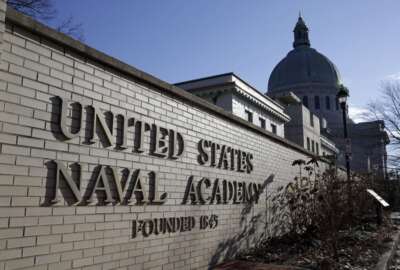- The General Services Administration is taking on the challenge of overcoming unconscious bias with identity verification technology. GSA is looking for participants for a new remote identity proofing pilot program to figure out how to overcome bias, especially for people of color. The study will test and validate facial recognition and matching algorithms and technology to identify barriers across demographic lines. The study comes after GSA's Login.gov platform failed to meet the standards for remote identity proofing. Sonny Hashmi, commissioner of the Federal Acquisition Service, said on LinkedIn that the results will not only inform government strategy moving forward, but will also lower barriers for more Americans, as they interact with their government digitally. GSA is offering $25 to participants.
- A new influx of funding will go toward completing three construction projects in the Department of Homeland Security’s headquarters consolidation project. DHS and the General Services Administration will use a $288 million investment from the Inflation Reduction Act to build new headquarters for the Cybersecurity and Infrastructure Security Agency and Immigration and Customs Enforcement. They will also build a new parking garage. GSA said the projects will reduce DHS's carbon footprint by investing in solar panels, electric vehicle charging stations and much more. The next phase of construction at DHS' St. Elizabeths campus headquarters in southeast D.C. will start in early 2024.
- The American Federation of Government Employees is calling on the National Science Foundation to take a step back in return-to-office plans. Results of a new union-conducted survey show that many National Science Foundation employees will consider leaving the agency once requirements to report to the office four days per pay period take effect in October. About a quarter of survey respondents said that level of in-office requirements would be “unworkable.” While NSF said it “deeply values” employee feedback, the agency has no intentions of altering its return-to-office plans. It will move forward with the changes this fall, similar to other agencies, under directions from the White House. NSF, however, said it does intend to look into alternative flexibilities for employees.
- Sexual harassment and assault at the service academies will continue to rise without significant changes to management and culture, according to a new Defense Department study. The number of cadets and midshipmen experiencing unwanted sexual contact and sexual harassment at the military service academies spiked since 2020 to an average of over 20% for women and 4% for men. The new study, ordered by DoD, recommends better access to mental healthcare, as well as a restructuring of peer leadership for cadets and midshipmen.
- The Patent and Trademark Office is changing the name of its Thomas Edison Visiting Scholars Program. It has been renamed in honor of African-American inventor Marian Rogers Croak. USPTO cites her work in developing voice-over-IP and as the inventor of the text-to-donate system. She is currently an engineering vice president at Google. The new name came from a poll of employees. Director Kathi Vidal said the USPTO sought names of people who embody not just innovation, but also diversity, equity and inclusion.
- Agencies have new mandates for how to invest their research and development funding in fiscal 2025. In new guidance issued yesterday, the Office of Management and Budget laid out seven priority areas ranging from building trustworthy artificial intelligence to achieving better health outcomes to reducing barriers and inequities. The White House said agency budget submissions should detail how each request will address these priorities. Additionally, given tight budget constraints, OMB is suggesting agencies coordinate across complementary investment areas.
- Army Reserve soldiers will have a new childcare option in the future. The Army will run a pilot program in Iowa and Missouri using the childcare company WeeCare to provide services. WeeCare was selected, in part, because it offers technical services like an app to help families find childcare facilities, tour them and enroll in them. Many military installations suffer from lack of childcare options, leading to long waiting lists. The new partnership is designed to correct those shortcomings.
- The Intelligence Advanced Research Project Activity worked with 29 teams to see if your pants can outsmart you. The Smart Electrically Powered and Networked Textile Systems, or Smart ePants program received ideas from research and development organizations, who sought to develop sensor systems into pants while still having the same stretchability, bendability, washability and comfort of regular clothes. The goal of this research is to integrate the pants with audio recording, video and photography, and indoor geolocation technologies. The idea is for members of the Intelligence Community to be able to record information hands free without the discomfort of rigid devices and have a greater range of motion while improving their response time in difficult situations.
Copyright
© 2024 Federal News Network. All rights reserved. This website is not intended for users located within the European Economic Area.




